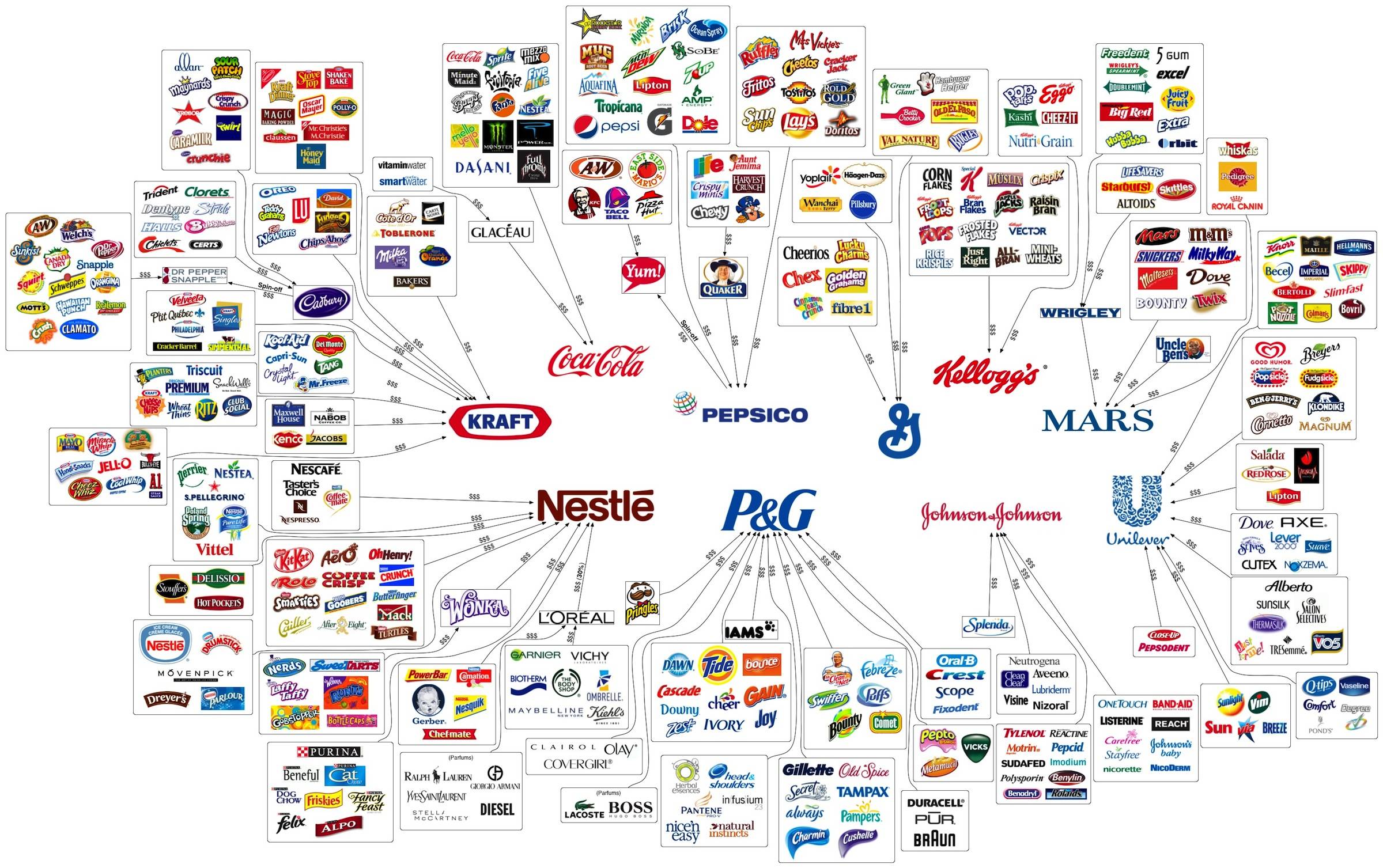Ever gone to the store and been so overwhelmed by all the product choices that you felt “decision paralysis,” that sensation where you can’t decide what to buy? Ironically, almost everything you buy or want to buy is actually controlled by only 10 corporations.
The Illusion of Choice chart, posted to Reddit, is making waves in how people view the world of brands. The monopoly of corporate ownership is the very reason why it’s impossible to buy a Coca-Cola beverage at Taco Bell or Pizza Hut (PepsiCo is in business with those chains). And how about Mars owning most of today’s most popular candy bars like Twix, Snickers and M&M’s?
What’s perhaps most interesting about the chart is that companies own brands of completely separate product types. So when you buy your Dove soap, Klondike Bars and Q-tips you are helping Unilever profit, all in one shopping trip. Unilever, best known for selling soap, serves 2 billion people worldwide with its wide span of products.
Or take the $84 billion company Proctor & Gamble, the largest advertiser in the world. The powerful company will take all the profits from you buying Duracell batteries, Pampers diapers, Iams pet food and Pringles. With all of its products, P&G serves 4.8 billion people around the world.
Then there’s Nestle, the $200 billion corporation most famous for helping you indulge your sweet tooth with its delicious chocolates and sweet snacks. But the sugary conglomerate actually holds ownership over more than 8,000 brands, not to mention has partnerships with and stakes in numerous other companies including L’Oreal, Gerber baby food, Purina pet food among others, and clothing companies like Ralph Lauren and Diesel.
Johnson & Johnson controls mostly brands for household and convenience store items, and the rest of the companies, including Kraft, PepsiCo, Coca-Cola, General Mills, Kellogg’s and Mars stick with producing mostly food brands.
So the next time you go to the store and look through all your brand and product options, just remember there are really only ten corporations from which you’re choosing.
via PolicyMic



